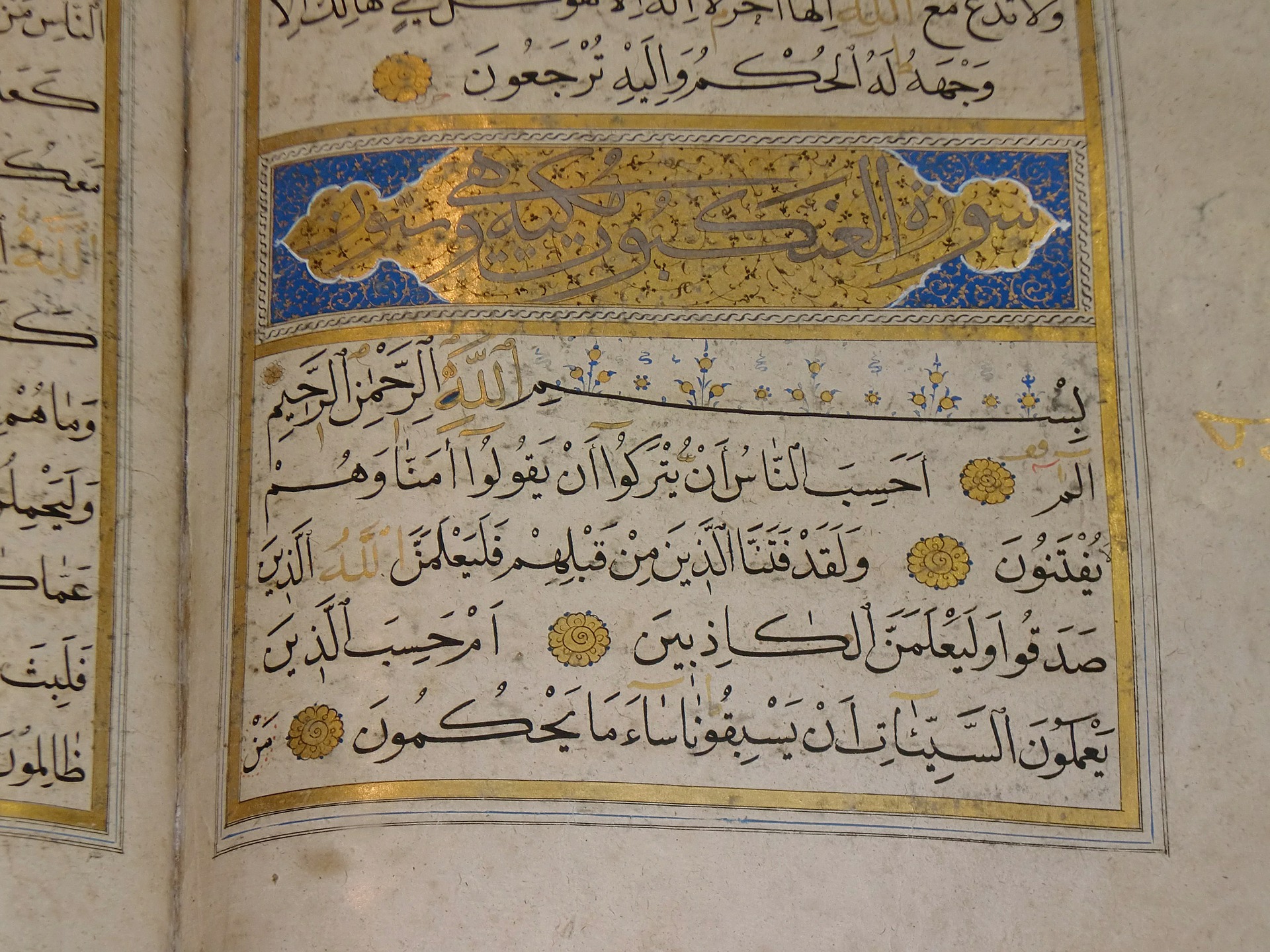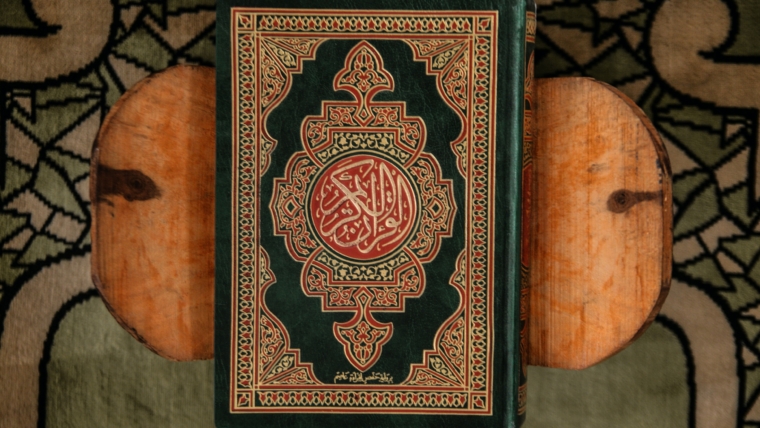This short article explores the methodologies and practical steps to benefit from the Glorious Qur’an through reading and contemplation. It begins by recapitulating some of the benefits from the Qur’an including, but not limited to guidance/light, a means of firmness and reassurance, a cure and source of solace for the heart, as well as a means of protection. The second part of this diet describes some of the ways to maximize the benefits from the Qur’an through submission and an open heart. An instructive statement from Ibn Abbaas (RAA) and the attentive requirements from Ibn Qayyim was cited as the major vehicles for benefitting maximally from the Qur’an.
HOW TO MAXIMIZE BENEFITS FROM THE QURAN
AlhamduliLLAH, Was-solaatuwasallaamalaaRasoolillaah.
As to what follows, the bounty of the Quran is one of the greatest blessings anyone can possess. Allah (SWT) mentioned that such a blessing is greater than all pursuits and all accomplishments.:
قُلْ بِفَضْلِ اللَّهِ وَبِرَحْمَتِهِ فَبِذَٰلِكَ فَلْيَفْرَحُوا هُوَ خَيْرٌ مِمَّا يَجْمَعُونَ(٥٨)” سورة يونس
“Say: In the bounty of Allah and in His Mercy-in that let them rejoice; it is better than what they accumulate” 1
Evidently, this bounty supersedes all others because it is very comprehensive and covers different aspects of human life. That is why Al-Imam Abu Bakr, Muhammad Al-Aaajurri said:
أن القرآنَ عصمةٌ لمن اعتصم به ، وهدى لمن اهتدى به ، وغنى لمن استغنى به ، وحرزٌ من النار لمن اتبعه ، ونورٌ لمن استنار به ، وشفاءٌ لما في الصدور ، وهدى ورحمةٌ للمؤمنين2
“The Qur’an is a protection for whomsoever seeks protection with it, a guidance for he who seeks guidance through it, enrichment for the one who covets riches by it, protection from the fire for whomsoever follows it, a light for the one who seeks its light, a cure for the soul and guidance and mercy for the believers”
Of the contemporary benefits of the Qur’an is that the mind and brain that possesses the Qur’an is far more active compared to other minds even at a very old age. It has been scientifically proven that Memorizing and revising the Qur’an minimizes the risk of getting depression, hypertension, diabetes at old age 3. Studies have shown that those who memorized at least 10 sections of Quran were 64%, 71%, and 81% less likely to have hypertension, diabetes, and depression compared to those who memorized less than 0.5 sections. In other studies, specific verses of the Qur’an have been found to be very effective for improving functional communication skills, independence, and quality of life in stroke patients with aphasia motoric disorders.4
In the history of Islam and scholarly pursuits, many scholars of Islam have been bitterly imprisoned to solitary confinements hoping that they would suffer from depression. Many of the scholars of Islam have rather busied themselves with writing and Quranic studies during their imprisonments. Some of their imprisoners would deny these scholars access to writing materials in the hope that they would be stuck and unable to do anything, subsequently dying of depression. Rather, scholars like IbnTaymiyyah and Ibn Qayyim busied themselves with Qur’an recitation and worship while imprisoned since they already had it completely memorized5. It was said that Ibn Taymiyyah read the entire Quran 83 times during his last imprisonment until he got to the end of Surah Al-Qamar before breathing his last.
His student Ibn Qayyim was said to have been imprisoned alongside him but in a different cell. Ibn Rajab mentioned that: “…He (Ibn Qayyim) was imprisoned with Shaykh Taqi-uddeen (Ibn Taymiyyah) in his last incarceration…away from him (Ibn Taymiyyah). And he was not released until Shaykh’s death. During the duration of his incarceration, he was busied with reciting, contemplating, and reflecting over the Quran. As a result, much good opened up for him…”67
SOME BENEFITS FROM THE QURAN
Guidance: The Qur’an remains an eternal source of light and guidance for humanity. It is the clear criterion that distinguishes between truth and falsehood. Allah says in the Qur’an:
“يَا أَيُّهَا النَّاسُ قَدْ جَاءَكُمْ بُرْهَانٌ مِنْ رَبِّكُمْ وَأَنْزَلْنَا إِلَيْكُمْ نُورًا مُبِينًا(١٧٤)” سورة النساء
“O mankind! Verily, there has come to you a convincing proof (Prophet Muhammad) from your Lord, and We sent down to you a manifest light (this Qur’an).”
Explaining this verse, Ibn Qayyim says: “His statement “Verily, there has come to you a convincing proof” has three explanations. The first meaning is that it is the clear evidence according to Mujahid and As-Suddi. The second is that it is the Qur’an according to Qatadah. The third is that the proof is the Prophet Muhammad according to Sufyan Ath-Thawri”8
Other explanations of this Ayaah by Imam Tabari has been provided in the accompanying presentation. The Imam clarifies that the verse addresses mankind because guidance is for people from all walks of life, be they Christians, Jews, Nonbelievers, Agnostics, etc. The evidence has come to them to clarify the falsehood in which they all reside so they can gravitate towards the light of Islam and the guidance of the Prophet Muhammad. The Quranic guidance spans all aspects of life. A leader can look into the Qur’an and get guidance. There is also guidance in it for the professional, the teacher, the subject, and the entirety of humankind. An example of guidance for the callers of Islam (Duaat) is an interesting conversation that happened between Musa and Pharaoh. The conversation started with Musa asking Pharaoh to release the Children of Israel to him. Musa said: “So allow the Children of Israel to go with us”. The conversation proceeded with accusations by Pharaoh upon the honor of Musa. He retorted: “Did we not bring you up among us as a child? And you did dwell many years of your life with us.
“And you did your deed, which you did (i.e. the crime of killing a man). And you are one of the ingrates.”9
Despite these accusations, instead of losing focus, Musa was deliberate in the message he wanted to pass to Pharaoh and his Chiefs. The crux of the conversation is a series of “قَالَ-He said” as follows:
| English Translation (Muhsin Khan) | Arabic (Verse 23-31) |
| 23. Pharaoh said: “And what is the Lord of the ‘Alamin (mankind, jinns and all that exists)?” | قَالَ فِرْعَوْنُ وَمَا رَبُّ الْعَالَمِينَ(٢٣) |
| 24. Musa (Moses) said: “Lord of the heavens and the earth, and all that is between them, if you seek to be convinced with certainty.” | قَالَ رَبُّ السَّمَاوَاتِ وَالْأَرْضِ وَمَا بَيْنَهُمَا ۖ إِنْ كُنْتُمْ مُوقِنِينَ |
| 25. Pharaoh said to those around: “Do you not hear (what he says)? | قَالَ لِمَنْ حَوْلَهُ أَلَا تَسْتَمِعُونَ |
| 26. Musa (Moses) said: “Your Lord and the Lord of your ancient fathers!” | قَالَ رَبُّكُمْ وَرَبُّ آبَائِكُمُ الْأَوَّلِينَ |
| 27. Pharaoh said: “Verily, your Messenger who has been sent to you is a madman!” | قَالَ إِنَّ رَسُولَكُمُ الَّذِي أُرْسِلَ إِلَيْكُمْ لَمَجْنُون |
| 28. Musa (Moses) said: “Lord of the east and the west, and all that is between them, if you did but understand!” | قَالَ رَبُّ الْمَشْرِقِ وَالْمَغْرِبِ وَمَا بَيْنَهُمَا ۖ إِنْ كُنْتُمْ تَعْقِلُونَ |
| 29. Pharaoh said: “If you choose an ilah (god) other than me, I will certainly put you among the prisoners.” | قَالَ لَئِنِ اتَّخَذْتَ إِلَٰهًا غَيْرِي لَأَجْعَلَنَّكَ مِنَ الْمَسْجُونِينَ |
| 30. Musa (Moses) said: “Even if I bring you something manifest (and convincing)?” | قَالَ أَوَلَوْ جِئْتُكَ بِشَيْءٍ مُبِينٍ |
| 31. Pharaoh said: “Bring it forth then, if you are of the truthful!” | قَالَ فَأْتِ بِهِ إِنْ كُنْتَ مِنَ الصَّادِقِينَ(٣١)” |
The high point of this conversation was when Pharaoh called Musa a “madman”. Musa responded by further strengthening his argument saying: your Lord is the Lord of the east and the west. This is an important message for the modern day Duaats who are keen to refuting one another and fighting over the slightest and flimsiest excuse. Distractions are part of Da’wah but the most successful callers are never distracted by the accusations and allegations thrown at them because they are never accountable to the people besides Allah.
To continue enjoying this conversation on “How to maximize the benefits from the Quran” follow along by kindly downloading the presentation file and clicking on the play icon below and do not forget to share.
- Yunus [58]
- الإمام الآجريّ رحمه الله في أخلاق حملة القرآن
- Maruf et al., “The Effect of Memorizing the Al Quran on Quality of Life in Stroke Patients With Aphasia Motoric Disorders.”
- Ibid.; Saquib et al., “Health Benefits of Quran Memorization for Older Men.”
- El-Tobgui, “Ibn Taymiyya: Life, Times, and Intellectual Profile in: Ibn Taymiyya on Reason and Revelation.”
- العقود الدرية، لابن عبدالهادي
- الذيل على طبقات الحنابلة ١٧٣/٣
- Zaadul Maseer
- As-Shua’ara vs. 17-19


